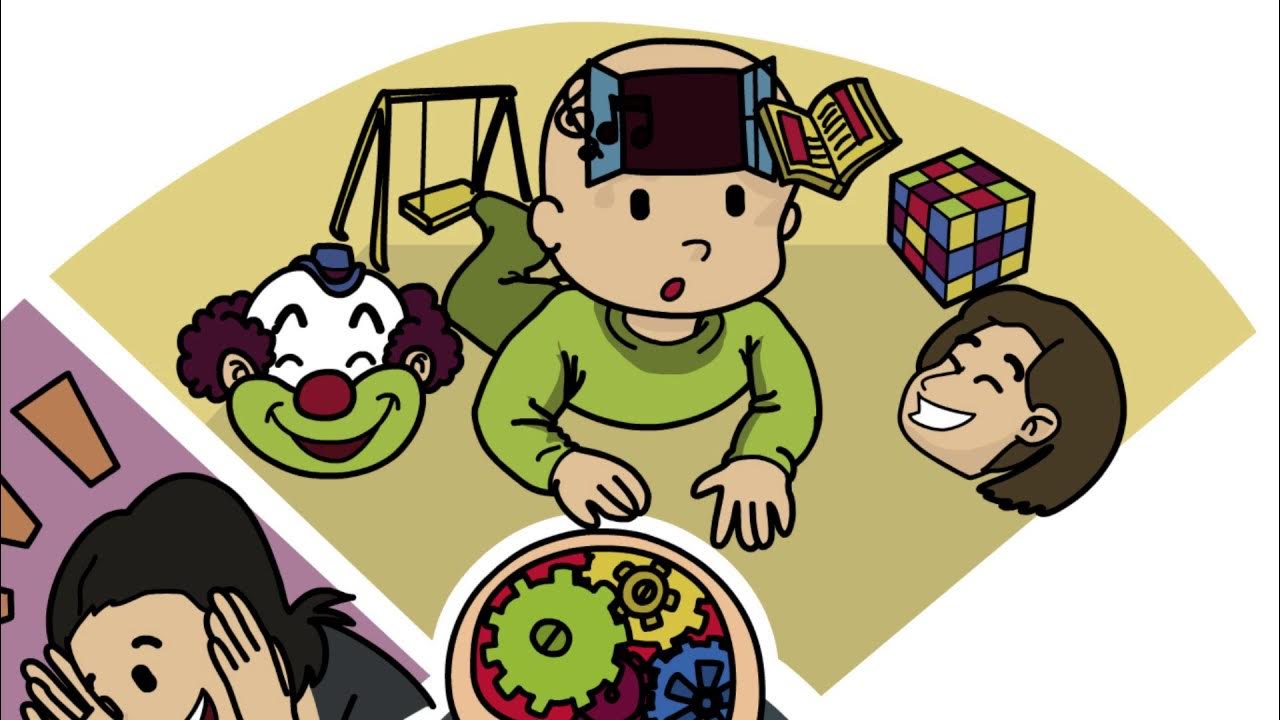The Science of Early Childhood Development
Summary
TLDRThe script emphasizes the critical impact of early childhood experiences on brain development, highlighting how these formative years lay the groundwork for cognitive, social, and emotional capacities. It underscores the brain's plasticity, shaped by both genetics and environmental interactions, and the importance of nurturing relationships for healthy circuitry formation. Stress and instability can disrupt this development, leading to long-term issues in learning, behavior, and health. Early intervention is crucial due to the brain's diminishing flexibility with age.
Takeaways
- 🏗️ Early childhood experiences lay the foundation for social problems and challenges faced by society.
- 🧠 Developments in neuroscience and molecular biology highlight the impact of early experiences on brain development and overall health.
- 👶 The brain develops from the bottom up, with basic circuits forming first and complex circuits building upon them as skills advance.
- 🔧 Biologically, the brain is prepared to be shaped by experiences from birth, and even before, influencing its circuitry formation.
- 🤝 The interaction between genetics and experience is crucial in shaping brain architecture through the relationships children have with adults.
- 🔄 Development is a two-way street, with a serve-and-return nature in children's interactions with adults.
- 🧠 The brain is a highly integrated organ with different sections specializing in various processes, including cognition and emotion.
- 😌 Emotional well-being and social competence in children positively affect learning and cognitive function.
- 😖 Emotional disturbances like fear, anxiety, or stress can impair learning, regardless of a child's intellectual abilities.
- 🧩 Cognitive development cannot be separated from social and emotional development; they are interdependent.
- 🛠️ Early intervention is critical due to the brain's optimal flexibility and plasticity in early life, which diminishes as it matures.
- ⏳ Prolonged stress early in life can lead to a range of problems later, affecting not only learning and behavior but also physical and mental health.
Q & A
What is the significance of early childhood development for societal challenges?
-Early childhood development lays the foundation for addressing various social problems by shaping learning capacities, behaviors, and physical and mental health through early experiences, which are deeply ingrained in our biology.
How do recent developments in neuroscience and molecular biology contribute to our understanding of early experience's impact?
-These developments have shown that early experiences, starting from birth and even before, significantly influence our bodies, brain development, and overall health, highlighting the importance of these early interactions.
What is the process by which the brain builds its circuitry?
-The brain builds its circuitry from the bottom up, first establishing basic circuits for fundamental skills and then constructing more complex ones on top of these as more advanced skills are developed.
How is the brain biologically prepared to be shaped by experience?
-The brain is biologically prepared to be shaped by expecting the experiences of a young child to influence the formation of its circuitry, which is an inherent part of our biological makeup.
What is the 'serve-and-return' nature of children's interaction with adults?
-The 'serve-and-return' nature refers to the back-and-forth interaction between children and adults, emphasizing the reciprocal relationship that is crucial for development.
How does the brain's structure facilitate its multifunctional nature?
-The brain is a highly integrated organ with multiple sections specializing in different processes, such as cognitive function, emotional processing, and sensory perception.
What impact does a child's emotional state have on their learning?
-A child's emotional state significantly affects their learning. If a child is emotionally stable and socially competent, it promotes more positive and productive learning, whereas fears, anxiety, or stress can impair learning, regardless of intellectual ability.
Why is it important not to separate cognitive development from social and emotional development in early years?
-Cognitive development cannot be separated from social and emotional development because they are interdependent; all aspects of development build upon each other, and emotional well-being is crucial for cognitive growth.
How do stable and nurturing relationships contribute to brain development?
-Stable and nurturing relationships foster the development of healthy brain circuitry by providing a supportive environment that promotes positive experiences and interactions.
What are the long-term effects of experiencing uncertainty, instability, or neglectful relationships during early development?
-Such experiences can disrupt the brain's circuitry, leading to a wear-and-tear effect over time, which may result in a range of problems later in life, including issues with the immune and cardiovascular systems, as well as learning and behavioral difficulties.
Why is early intervention critical in brain development, and what is the consequence of not addressing issues early on?
-Early intervention is critical because the brain is most flexible and plastic in early life, allowing for optimal development. Failing to address issues early can lead to difficulties in refining brain circuitry later, making it harder to correct developmental challenges.
Outlines

This section is available to paid users only. Please upgrade to access this part.
Upgrade NowMindmap

This section is available to paid users only. Please upgrade to access this part.
Upgrade NowKeywords

This section is available to paid users only. Please upgrade to access this part.
Upgrade NowHighlights

This section is available to paid users only. Please upgrade to access this part.
Upgrade NowTranscripts

This section is available to paid users only. Please upgrade to access this part.
Upgrade NowBrowse More Related Video

InBrief: The Science of Early Childhood Development

Early Childhood Education: The Research

Preschooler Development

Early in Life & the Importance of Early Childhood Education | Steve Zwolak | TEDxDelmarLoopED

TEACH EDUC 101: Physical Development of Infants and Toddlers (PART A)

O NEURODESENVOLVIMENTO INFANTIL
5.0 / 5 (0 votes)